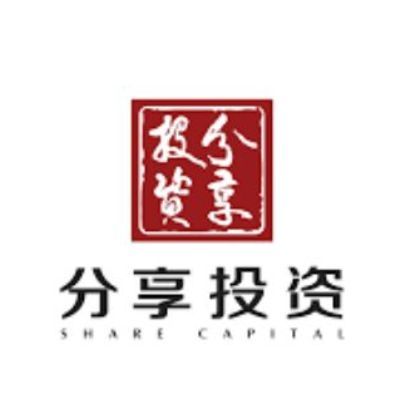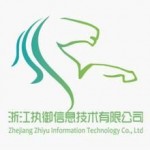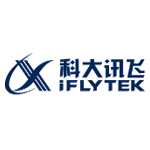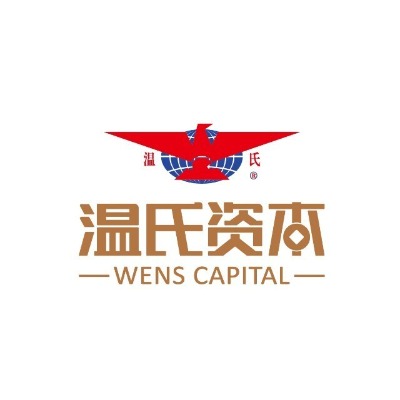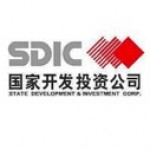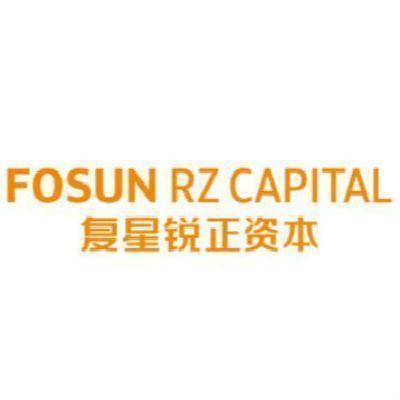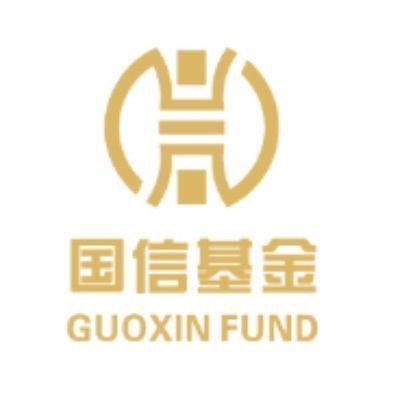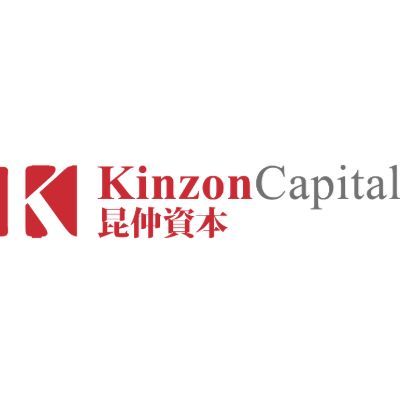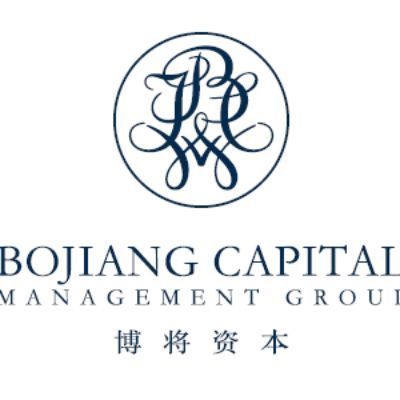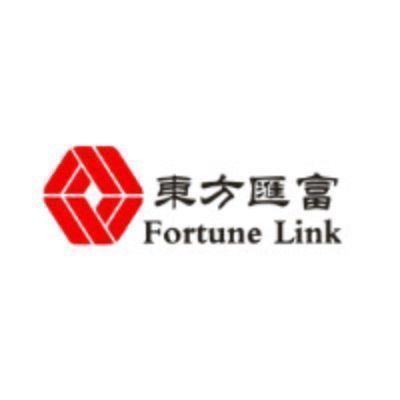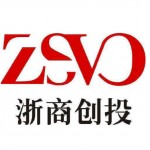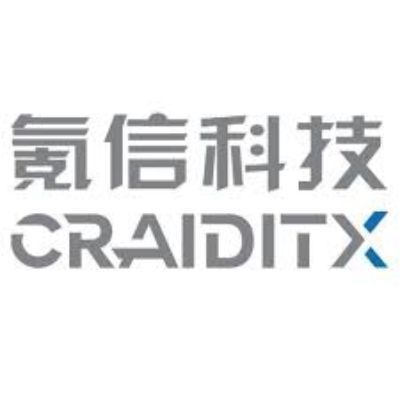Shenzhen Sikaoli
-
DATABASE (83)
-
ARTICLES (54)
Established in Shenzhen in 2007, Share Capital has invested in over 100 companies. Some of its portfolio companies – e.g., NavInfo, Perfect World and BGI – have gone public. Its investment team of nearly 50 members manages more than RMB 6 billion worth of assets. Share Capital has set up a healthcare fund of RMB 1.5 billion and invested in over 70 health-related projects.
Established in Shenzhen in 2007, Share Capital has invested in over 100 companies. Some of its portfolio companies – e.g., NavInfo, Perfect World and BGI – have gone public. Its investment team of nearly 50 members manages more than RMB 6 billion worth of assets. Share Capital has set up a healthcare fund of RMB 1.5 billion and invested in over 70 health-related projects.
Founded in 2011 by Cyril Ebersweiler, partner of the venture capital firm SOSV, HAX has grown into the world’s first and largest hardware accelerator. It currently operates in Shenzhen and San Francisco. Funded by SOSV, HAX selects teams with hardware prototypes and turns them into functional, sustainable companies. In this way, HAX has brought 65 products to the market in the last three years.
Founded in 2011 by Cyril Ebersweiler, partner of the venture capital firm SOSV, HAX has grown into the world’s first and largest hardware accelerator. It currently operates in Shenzhen and San Francisco. Funded by SOSV, HAX selects teams with hardware prototypes and turns them into functional, sustainable companies. In this way, HAX has brought 65 products to the market in the last three years.
Highly successful in the Middle East, Jolly Information Technology is a Chinese cross-border e-commerce company that sells products to over 175 territories with over 20 million registered users. It currently has branches or local operating teams in Hangzhou, Shenzhen, Guangzhou, Hong Kong, the Silicon Valley, Jordan, Saudi Arabia and Dubai. Its online shopping app Jolly is the best-known app in the Middle East.
Highly successful in the Middle East, Jolly Information Technology is a Chinese cross-border e-commerce company that sells products to over 175 territories with over 20 million registered users. It currently has branches or local operating teams in Hangzhou, Shenzhen, Guangzhou, Hong Kong, the Silicon Valley, Jordan, Saudi Arabia and Dubai. Its online shopping app Jolly is the best-known app in the Middle East.
iFLYTEK is a Chinese software company that specializes in speech technology such as speech synthesis and speech recognition. Established in 1999, iFLYTEK was listed on the Shenzhen Stock Exchange in 2008. With products like iFLYTEK Voice Input and iFLYTEK ViaFly, it has cornered more than 70% of the Chinese speech technology market. iFLYTEK has made investments in over 60 AI companies in the education, healthcare, loT, connected car and robotics sectors, where its products can be widely applied.
iFLYTEK is a Chinese software company that specializes in speech technology such as speech synthesis and speech recognition. Established in 1999, iFLYTEK was listed on the Shenzhen Stock Exchange in 2008. With products like iFLYTEK Voice Input and iFLYTEK ViaFly, it has cornered more than 70% of the Chinese speech technology market. iFLYTEK has made investments in over 60 AI companies in the education, healthcare, loT, connected car and robotics sectors, where its products can be widely applied.
Huang is co-founder and CEO of TTPOD, a cross-platform music player. He co-founded TTPOD in 2007, which, by 2013, had accumulated 200 million users and was subsequently sold to Alibaba Group. In 2015, Huang became COO of Baofeng Mojing, a VR device creator controlled by Shenzhen-listed internet company Baofeng Group. In 2016, Baofeng Mojing sold 2 million VR devices. Huang participated in Kuaipeilian's seed funding round.
Huang is co-founder and CEO of TTPOD, a cross-platform music player. He co-founded TTPOD in 2007, which, by 2013, had accumulated 200 million users and was subsequently sold to Alibaba Group. In 2015, Huang became COO of Baofeng Mojing, a VR device creator controlled by Shenzhen-listed internet company Baofeng Group. In 2016, Baofeng Mojing sold 2 million VR devices. Huang participated in Kuaipeilian's seed funding round.
Founded in 2019, Wens Capital is an independent business unit responsible for investment and M&A under Guangdong Wens Food Group which went public on Shenzhen Stock Exchange in 2015. Through two subsidiaries Wens Investment and Wens Equity Investment, it currently manages about RMB 10bn worth of assets and has invested in more than 50 companies. It mainly invests in military projects and companies from sectors of environmental protection, healthcare and TMT.
Founded in 2019, Wens Capital is an independent business unit responsible for investment and M&A under Guangdong Wens Food Group which went public on Shenzhen Stock Exchange in 2015. Through two subsidiaries Wens Investment and Wens Equity Investment, it currently manages about RMB 10bn worth of assets and has invested in more than 50 companies. It mainly invests in military projects and companies from sectors of environmental protection, healthcare and TMT.
Founded in 2016, SDICVC is a fund management company under State Development & Investment Corp, dedicating itself to promoting the industrialization of advanced technology and innovation in China, with key focus in Clean Technology, New Energy, Advanced Biotechnology, Advanced IT & Electronic Science. SDICVC currently manages 3 major funds, namely, National Science and Technology Major Project Fund, JingJinJi (Beijing, Tianjin, Hebei) Special Fund and High-Tech (Shenzhen) Startup Fund, backing up 30 Chinese startups in the related fields.
Founded in 2016, SDICVC is a fund management company under State Development & Investment Corp, dedicating itself to promoting the industrialization of advanced technology and innovation in China, with key focus in Clean Technology, New Energy, Advanced Biotechnology, Advanced IT & Electronic Science. SDICVC currently manages 3 major funds, namely, National Science and Technology Major Project Fund, JingJinJi (Beijing, Tianjin, Hebei) Special Fund and High-Tech (Shenzhen) Startup Fund, backing up 30 Chinese startups in the related fields.
Fosun RZ Capital (Fosun Kinzon Capital)
Fosun RZ Capital was founded as the investment arm of the Fosun Group in 2013. Formerly known as Fosun Kinzon Capital, the firm changed its name in 2017. With assets of over RMB 10 billion under management, the firm invests mainly in the internet, finance, education, healthcare, automotive, consumer products and business services fields. Headquartered in Beijing, Fosun RZ Capital has branch offices in Shanghai, Shenzhen, Silicon Valley, New Delhi, Bangalore, Lagos, Jakarta, Singapore, among other locations.
Fosun RZ Capital was founded as the investment arm of the Fosun Group in 2013. Formerly known as Fosun Kinzon Capital, the firm changed its name in 2017. With assets of over RMB 10 billion under management, the firm invests mainly in the internet, finance, education, healthcare, automotive, consumer products and business services fields. Headquartered in Beijing, Fosun RZ Capital has branch offices in Shanghai, Shenzhen, Silicon Valley, New Delhi, Bangalore, Lagos, Jakarta, Singapore, among other locations.
Established in 2009, Shenzhen-based Guoxin Fund was formerly a subsidiary of Tianjin Chongshi Equity Investment Fund Management Co. Ltd. It became an independent entity in 2013, focusing on private fund management. As a state-controlled firm, Guoxin Fund now has over 10 branches and owns or controls shares in more than 20 companies whose business lines include industrial investment, fund management, financial lease, asset management, wealth management and fintech.
Established in 2009, Shenzhen-based Guoxin Fund was formerly a subsidiary of Tianjin Chongshi Equity Investment Fund Management Co. Ltd. It became an independent entity in 2013, focusing on private fund management. As a state-controlled firm, Guoxin Fund now has over 10 branches and owns or controls shares in more than 20 companies whose business lines include industrial investment, fund management, financial lease, asset management, wealth management and fintech.
A spinoff from Chinese investment bank China International Capital Corp, CDH has its roots in private equity. It started in 2002, raising its first fund of US$102 million. As of end-2015, it had over US$15 billion in assets under management, spanning private equity, public equities, real estate and more. It has invested in more than 150 companies, including WH Group, Belle International, Mengniu Dairy, Qihoo 360 and Luye Pharma; and has offices in Beijing, Hong Kong, Shanghai, Shenzhen, Singapore and Jakarta.
A spinoff from Chinese investment bank China International Capital Corp, CDH has its roots in private equity. It started in 2002, raising its first fund of US$102 million. As of end-2015, it had over US$15 billion in assets under management, spanning private equity, public equities, real estate and more. It has invested in more than 150 companies, including WH Group, Belle International, Mengniu Dairy, Qihoo 360 and Luye Pharma; and has offices in Beijing, Hong Kong, Shanghai, Shenzhen, Singapore and Jakarta.
Beijing Kunlun Tech Co., Ltd. (Kunlun) is a Beijing-based gaming, fintech and software company founded in 2008. It went public on the Shenzhen Stock Exchange in 2015. In 2016, Kunlun acquired a 60% stake in Grindr. It now invests primarily in sectors such as social networking, live streaming, IoT and AI. Four of the companies in which it invested - Qudian, Yinke, Opera and Ruhan - have gone public as of April 2019.
Beijing Kunlun Tech Co., Ltd. (Kunlun) is a Beijing-based gaming, fintech and software company founded in 2008. It went public on the Shenzhen Stock Exchange in 2015. In 2016, Kunlun acquired a 60% stake in Grindr. It now invests primarily in sectors such as social networking, live streaming, IoT and AI. Four of the companies in which it invested - Qudian, Yinke, Opera and Ruhan - have gone public as of April 2019.
Kinzon Capital was co-founded by several former senior executives of Fosun Kinzon Capital (now called Fosun RZ Capital) in 2016. It invests primarily in early- and growth-stage TMT companies from China and the US. Kinzon Capital has offices in Beijing, Shanghai, Shenzhen and Silicon Valley and has invested RMB 2 billion in potential companies.
Kinzon Capital was co-founded by several former senior executives of Fosun Kinzon Capital (now called Fosun RZ Capital) in 2016. It invests primarily in early- and growth-stage TMT companies from China and the US. Kinzon Capital has offices in Beijing, Shanghai, Shenzhen and Silicon Valley and has invested RMB 2 billion in potential companies.
Bojiang Capital was founded in Shanghai in September 2005. The investment management group has branches in Hong Kong, Beijing, Zhejiang and Shenzhen. It also has offices in Silicon Valley and Los Angeles in the US.Bojiang mainly invests in the primary equity market and focuses on high-tech young companies in the technology, media and telecoms (TMT) industry, big data, artificial intelligence, corporate services, fintech, new materials and culture.
Bojiang Capital was founded in Shanghai in September 2005. The investment management group has branches in Hong Kong, Beijing, Zhejiang and Shenzhen. It also has offices in Silicon Valley and Los Angeles in the US.Bojiang mainly invests in the primary equity market and focuses on high-tech young companies in the technology, media and telecoms (TMT) industry, big data, artificial intelligence, corporate services, fintech, new materials and culture.
Founded in 2005, Fortune Link focuses on private equity investment. Its founder, Kan Zhidong was also the founder of Shenzhen Capital Group, one of the first few venture capitalists in China. As at March 2018, it had set up a number of funds and managed over 20 investment teams.With over RMB 30bn worth of assets under its management, Fortune Link mainly invests in sectors including TMT, environmental protection, advanced material, healthcare, high tech industries, culture and media.
Founded in 2005, Fortune Link focuses on private equity investment. Its founder, Kan Zhidong was also the founder of Shenzhen Capital Group, one of the first few venture capitalists in China. As at March 2018, it had set up a number of funds and managed over 20 investment teams.With over RMB 30bn worth of assets under its management, Fortune Link mainly invests in sectors including TMT, environmental protection, advanced material, healthcare, high tech industries, culture and media.
Being the first investment group in Zhejiang province to list on the NEEQ market, ZSVC has over 30 funds under its management today, amounting to nearly RMB 40 billion. Founded in 2007, it is the major investor for more than 130 Chinese startups across healthcare, media & entertainment, logistic and advanced manufacturing sectors, with more than 30 successful exits. Headquartered in Hangzhou, it has taken its widely acclaimed “Zhejiang Entrepreneur Experience” to a broader world with subsidiaries in Beijing, Shanghai, Shenzhen, Shenyang and the Silicon Valley.
Being the first investment group in Zhejiang province to list on the NEEQ market, ZSVC has over 30 funds under its management today, amounting to nearly RMB 40 billion. Founded in 2007, it is the major investor for more than 130 Chinese startups across healthcare, media & entertainment, logistic and advanced manufacturing sectors, with more than 30 successful exits. Headquartered in Hangzhou, it has taken its widely acclaimed “Zhejiang Entrepreneur Experience” to a broader world with subsidiaries in Beijing, Shanghai, Shenzhen, Shenyang and the Silicon Valley.
ScentRealm: Digitally reproducing scents on demand
Unlike colors and sounds, scents are hard to code and digitalize. ScentRealm has not only done it, but has also opened its scent editor and database to the public
Zhongzheng Information: Big data and fully integrated services for smart office buildings
Joining the Microsoft for Startups program will boost Zhongzheng's R&D and business expansion in China
In China's frothy tea drink universe, startups learn to battle
Tea shop startups like Nayuki and Heytea are staying afloat by turning to high-quality organic ingredients and greater brand visibility
China bets on road-vehicle coordination for the mass adoption of autonomous driving cars by 2025
Money pours in as China pushes sector to be the next growth engine, and both self-driving startups and their investors are optimistic about their commercialization attempts
Will Shanghai's new tech board be home to China’s next BAT?
As China’s new Nasdaq-style board speeds to welcome its first IPOs, here’s a look at what’s changed for Chinese tech firms listing in the mainland, and if it could be pivotal in the emerging tech cold war
In a nascent market, one-year-old Starfield has brought its offerings to around 3,000 F&B outlets and generated RMB 10m in revenue
Li Zexiang and his game-changing plans to take Chinese robotics global
An early supporter of drone giant DJI, Professor Li Zexiang is building robotics hubs across China to pivot homegrown enterprises into global players
Ambitious startup Kuaidiniao aims to be the Alipay of logistics
Kuaidiniao carves out a niche for itself in the logistics market by targeting small- and medium-sized businesses
HomeRun: IoT devices for home-alone pets
Founded by a pet owner who worried about leaving his dog alone at home, HomeRun is chalking up big sales in China's billion-dollar pet care market
In China's Covid-19-hit economy, cities dish out dining and shopping coupons to revive spending
Local governments are offering incentives to spend, but as millions have lost their jobs and income, more is needed to boost consumer confidence
Chinese DIY robotics startup Makeblock enters the classroom
Present in more than 140 countries, this ambitious startup is taking global STEM education by storm
Shrimp-farming data made easy: Interview with JALA’s CEO Liris Maduningtyas
Indonesian agritech startup JALA managed to overcome the hurdles caused by lack of experience after participating in accelerator programs. It is now taking the next steps to better products
Dao Foods unfazed by China tech crackdown, says alternative proteins aligned with state goals
Impact investor Dao Foods expects government support for alternative proteins to come, as it announces second batch of startups, diversifying into fermentation and cell-based proteins
Despite early promise, China's on-demand bus services hit potholes on the road to profit
High costs – not a lack of customers – have forced promising on-demand bus service startups like DuduBus to shift their focus to corporate shuttle services
Roadstar.ai: A promising autonomous driving startup wrecked by infighting
No side benefits from the disputes, whether it is the founding team, investors or the employees
Sorry, we couldn’t find any matches for“Shenzhen Sikaoli”.
